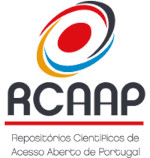Gamificação na Organização do Conhecimento: análise preliminar de plataformas gamificadas
DOI:
https://doi.org/10.24208/rebecin.v12.373Keywords:
Gamification, Knowledge Organization, Platforms, Active MethodologiesAbstract
The present study aimed to analyze educational platforms and their characteristics in search of favorable elements for creating remote gamified activities for higher education students in Library Science and Information Science courses. The methodology used for this study aimed to describe, through comparative analysis, the characteristics present in each of the platforms collected. As a result, it was observed that the gamified platforms analyzed have similarities that include, in addition to the common characteristics of gamification, such as points, competition, interactivity, the possibility of execution on current technological devices, in addition to a user-friendly interface and application in synchronous mode. Some differences were also observed, such as the absence of important elements, the lack of an asynchronous mode in Socrative, or the lack of support for the Portuguese language and cooperation between players in Quizizz, for example, which could be a differentiator considering a more complete platform. It is concluded that the greater the range of options when customizing a gamified platform, the better it will be for teachers to adapt their pedagogical plan if they want to apply gamification. The platforms gathered in this study are just a fraction of the possibilities of choice in a segment that grows and adapts to the global context year after year. Therefore, the most important thing is that the teacher knows the pedagogical needs of his students and, at the same time, knows his own needs as an educator.
Downloads
References
BARITÉ, M. Diccionário de organización del conocimiento: clasificación, indización, terminología. 5. ed. Montevideo: PRODIC, 2013. Disponível em:
http://archivos.liccom.edu.uy/diccionario/Diccionario%20Definitivo%20%5B3-11-13%5D.html. Acesso em: 4 mar. 2020.
BRIGHAM, T. J. An Introduction to Gamification: adding game elements for engagement. Medical Reference Services Quarterly, v. 34(4), 471–480, Oct./Dec. 2015. doi: 10.1080/02763869.2015.1082385
DAHLBERG, I. Knowledge organization: its scope and possibilities. Knowledge Organization, Wurzburg, v. 20, n.4, p. 211-222, 1993.
ESTEBAN NAVARRO, M. A.; GARCÍA MARCO, F. J. Las “primeras jornadas sobre organización del conocimiento: organización del conocimiento e información científica”. Scire, v.1, n.1, p. 149-157, 1995. Disponível em: https://ibersid.eu/ojs/index.php/scire/article/view/1038. Acesso em: 13 mar. 2020.
FARDO, M. L. A gamificação aplicada em ambientes de aprendizagem. Novas Tecnologias na Educação, v. 11 n. 1, julho, 2013.
GARCÍA MARCO, F. J. Avances en Organización del Conocimiento en España: los II Encuentros sobre Organización del Conocimiento en sistemas de información y documentación. In: ______. Organización del conocimiento en sistemas de información y documentación 2. Actas del II Encuentro de ISKO-España, 1995, Getafe. Zaragoza: Librería General, 1997. Disponível em: https://dialnet.unirioja.es/servlet/libro?codigo=1770. Acesso em: 13 mar. 2020.
GIL, A. C. Como elaborar projetos de pesquisa. 4. ed. São Paulo: Atlas, 2002.
HUIZINGA, J. Homo Ludens. 4.ed. São Paulo: Perspectiva, 2000.
JENKINS, H. Cultura da Convergência. 2. ed. São Paulo: Aleph, 2009.
KIM, B. Understanding Gamification. In: Library Technology Reports: expert guides to library systems and services. Chicago (IL): American Library Association, v. 51, n. 2, Feb./Mar. 2015.
MARTINS, C.; GIRAFFA, L. M. M. Design de práticas pedagógicas incluindo elementos de jogos digitais em atividades gamificadas. OBRA DIGITAL - ISSN 2014-503 | No. 10 –2016. Disponível em: http://revistesdigitals.uvic.cat/index.php/obradigital/article/view/69/89. Acesso em: 11 nov. 2020.
MORAN, J. M. Ensino e aprendizagem inovadores com tecnologias audiovisuais e telemáticas. In.: MORAN, J. M.; MASETTO, M. T.; BEHRENS, M. A. Novas tecnologias e mediação pedagógica. 10 ed. Campinas: Papirus. 2006.
RINCON-FLORES, E. G.; SANTOS-GUEVARA, B. N. Gamification during Covid-19: Promoting active learning and motivation in higher education. Australasian Journal of Educational Technology. Melbourne, Australia, 2021, 37(5), pp. 43–60. doi: 10.14742/ajet.7157.
UNICEF Brasil. Enfrentamento da cultura do fracasso escolar: Reprovação, abandono e distorção idade-série. Centro de Estudos e Pesquisas em Educação e Ações Comunitárias – CENPEC, 2021. Disponível em: https://www.unicef.org/brazil/relatorios/enfrentamento-da-cultura-do-fracasso-escolar. Acesso em: 4 abr. 2021.
Downloads
Published
How to Cite
Issue
Section
License
Copyright (c) 2025 Deise Sabbag, Dayane Teixeira de Sousa

This work is licensed under a Creative Commons Attribution 4.0 International License.
A REBECIN adota a licença Creative Commons CC-BY 4.0 (https://creativecommons.org/licenses/by/4.0/deed.pt_BR) , a qual permite:
- Compartilhar— copiar e redistribuir o material em qualquer suporte ou formato
- Adaptar— remixar, transformar, e criar a partir do material para qualquer fim, mesmo que comercial.
A REBECIN considera que o autor detém o direito autoral sobre sua produção, porém o autor deve concordar em ceder à revista o direito à primeira publicação. Além disso, o autor deve concordar que:
- em quaisquer publicações em repositórios institucionais, capítulos de livro ou outras produções decorrentes de trabalhos publicados na REBECIN, devem ser dados os devidos créditos à publicação inicial.
- estão autorizados a publicar e distribuir seu trabalho online (ex.: em repositórios institucionais ou na sua página pessoal) a qualquer momento antes ou durante o processo editorial, já que isso pode gerar alterações produtivas, bem como aumentar o impacto e a citação do trabalho publicado pela REBECIN.












 Licenciada por
Licenciada por 